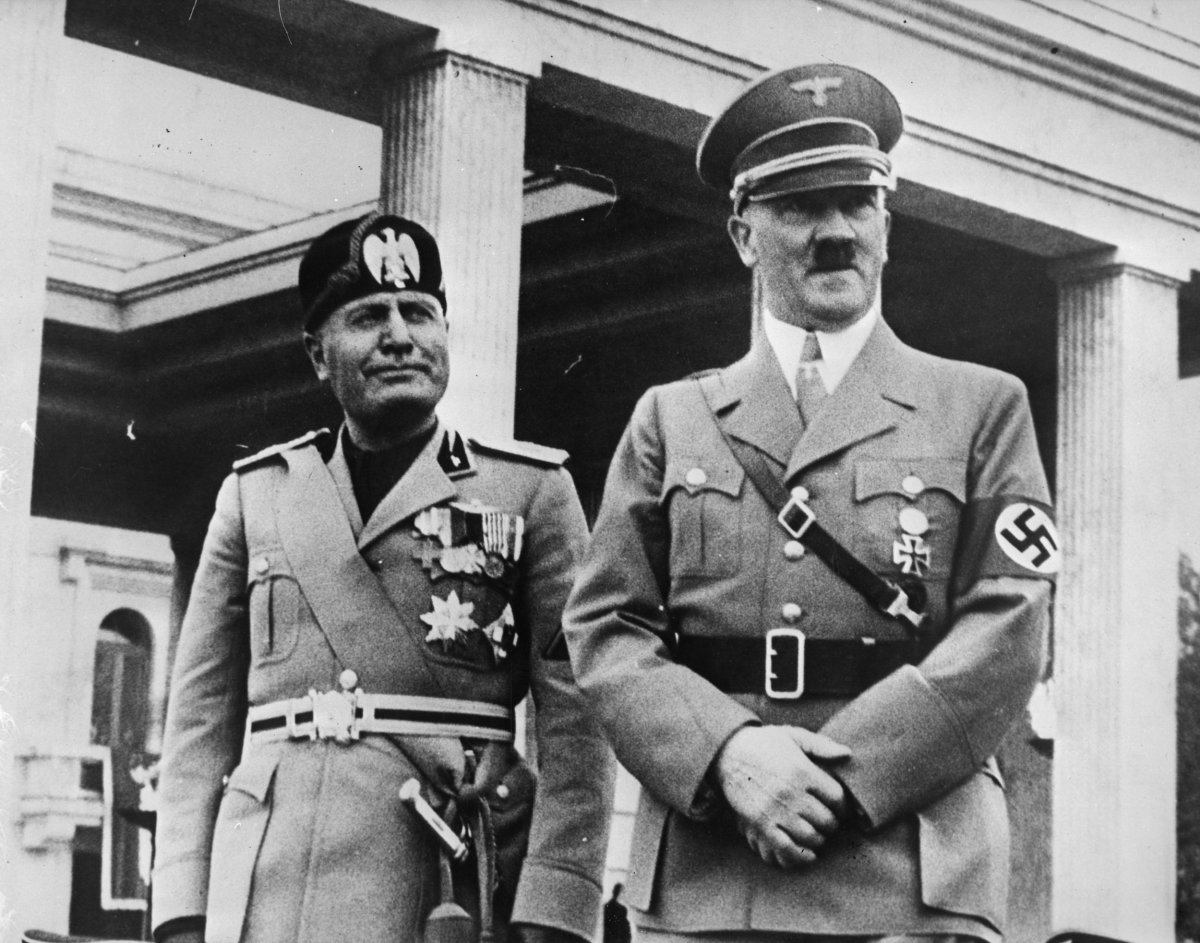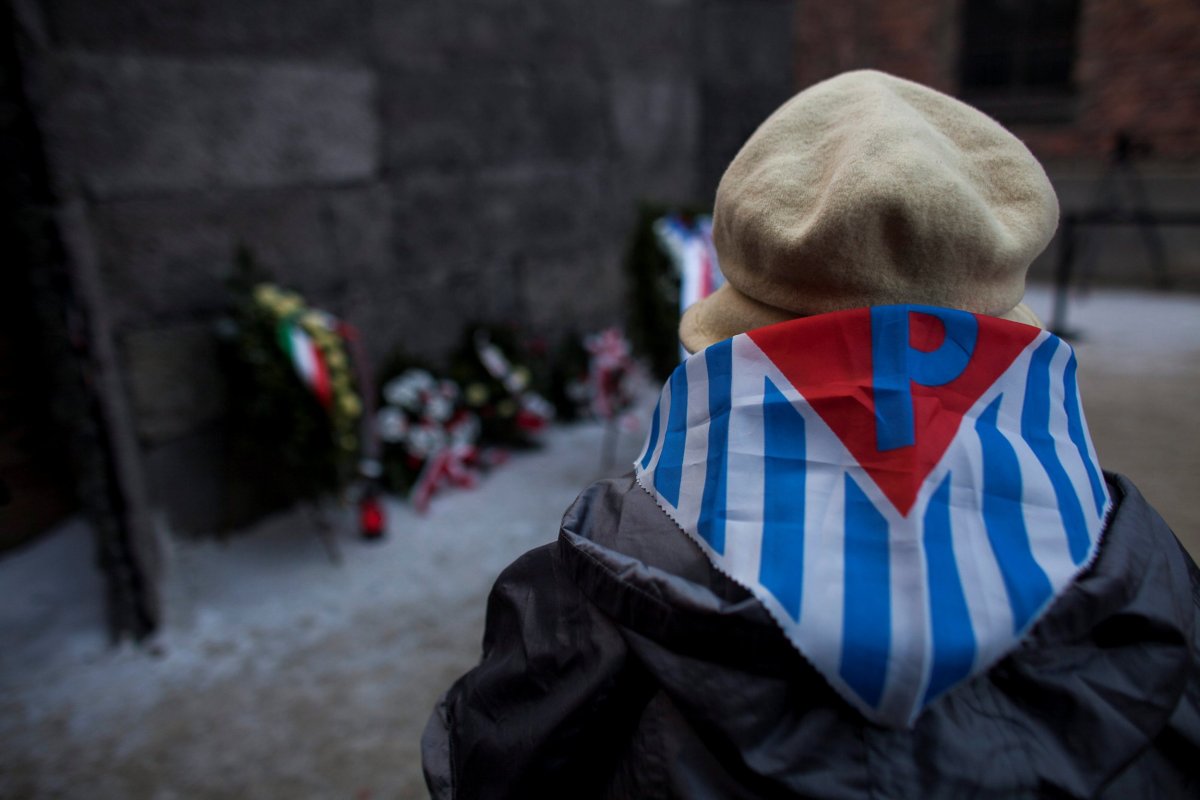A recently translated book about the Holocaust has claimed that Italian citizens played a crucial and enthusiastic role in the Nazi genocide during World War II.
Historian Simon Levis Sullam's book, The Italian Executioners: The Genocide of the Jews of Italy, was published in 2015 but only translated into English this year. In the book, Sullam provides what he calls a "historiographical counterblast" to shed light on the complicity of Italians in one of the worst crimes in human history, The Times of Israel said.
Sullam tracked more than 6,000 Italian Jews who were murdered during the final two years of the war. Most were detained and sent to Nazi concentration camps with the help of anti-Semitic Italian laws.
Sullam is a professor at Italy's Ca' Foscari University of Venice and has previously held teaching posts at Oxford and the University of California, Berkeley. An expert in the histories of nationalism, fascism and the Holocaust, Sullam said his book dispels the suggestion that Italian citizens did not cooperate with the genocide, even though more than 400 Italians have been recognized by Israel's Yad Vashem Holocaust museum for harboring and rescuing Jews during those dark years.

Facism flourished in Italy before it took hold in Germany. Dictator Benito Mussolini provided a useful blueprint for how a far-right organization could sow chaos and grab the reins of power in a major European nation. Their fascism made Mussolini and Adolf Hitler natural allies, and the two men would influence each other politically as a military alliance formed.
Mussolini introduced anti-Semitic laws to Italy in 1938, spurred on by Hitler's persecution of the Jews in Nazi Germany. Italian Jews were fired from their jobs, dismissed from schools and demonized in newspapers. The country's 46,000 Jews were registered and many put under surveillance.
Two years before Italy entered the war and three before the "Final Solution" was agreed upon at the Wannsee Conference, the stage had already been set for the murder of Jews in Italy. "The anti-Jewish polemic was as present in the fascist press, the mouthpiece of the militants, functionaries, and the higher echelons" of the state, writes Sullam.
The Holocaust came to Italy in 1943. By this time, the war had already turned inexorably against the Axis. The Nazis had been stopped by the Soviets at Stalingrad, the Second Battle of El Alamein had begun the Axis flight from Africa, and U.S. forces were island-hopping toward the Japanese home islands.
Regardless, the effort to round up the country's Jews began in earnest. Sullam said the scale of the project meant Italian citizens played "varying but crucial parts" in the crimes, whether as informers, police officers, truck drivers or train conductors, for example. Many were likely driven by fear or financial gain as much as ideological commitment, but were nonetheless complicit.
By the end of the war, 8,869 Italian Jews had been deported from Italy, of whom 6,746 were sent to the Auschwitz-Birkenau death camp in Nazi-occupied Poland. The vast majority died there in the gas chambers, while another 303 Jews were killed in massacres and pogroms on Italian soil.

"The genocide was widely carried out by bureaucratic means," Sullam said, "through police measures and actions: actions that represented political imperatives for some, for others simply orders from superiors, and for yet others an opportunity for profit or vendetta."
Italian gangs would often assist German soldiers in detaining Jewish communities. One prominent example is the Carita gang, which Sullam called "one of the most vicious actors" of the era." The group helped raid a convent in Florence in November 1943, capturing many hidden Jews whom gangsters sexually abused and extorted before they were sent to Auschwitz.
Other gangs ran scams whereby they offered to smuggle Jews across the border to safety, though actually took their money and turned their clients in for additional rewards from the Italian and German authorities.
Sullam argued that the Italian state had not done enough to admit the extent of its role in the genocide, suggesting there was a lack of "self-critical gestures" by Italians when compared with public and honest atonement in Germany. The author argued this began with a 1946 amnesty for those Italians involved in the persecution of Jews during the war.
"There is rarely any specific mention," Sullam said, "of the roles and responsibilities of the thousands of Italians who all played varying but crucial parts in the tragic process that resulted in genocide."
Uncommon Knowledge
Newsweek is committed to challenging conventional wisdom and finding connections in the search for common ground.
Newsweek is committed to challenging conventional wisdom and finding connections in the search for common ground.
About the writer
David Brennan is Newsweek's Diplomatic Correspondent covering world politics and conflicts from London with a focus on NATO, the European ... Read more
To read how Newsweek uses AI as a newsroom tool, Click here.








